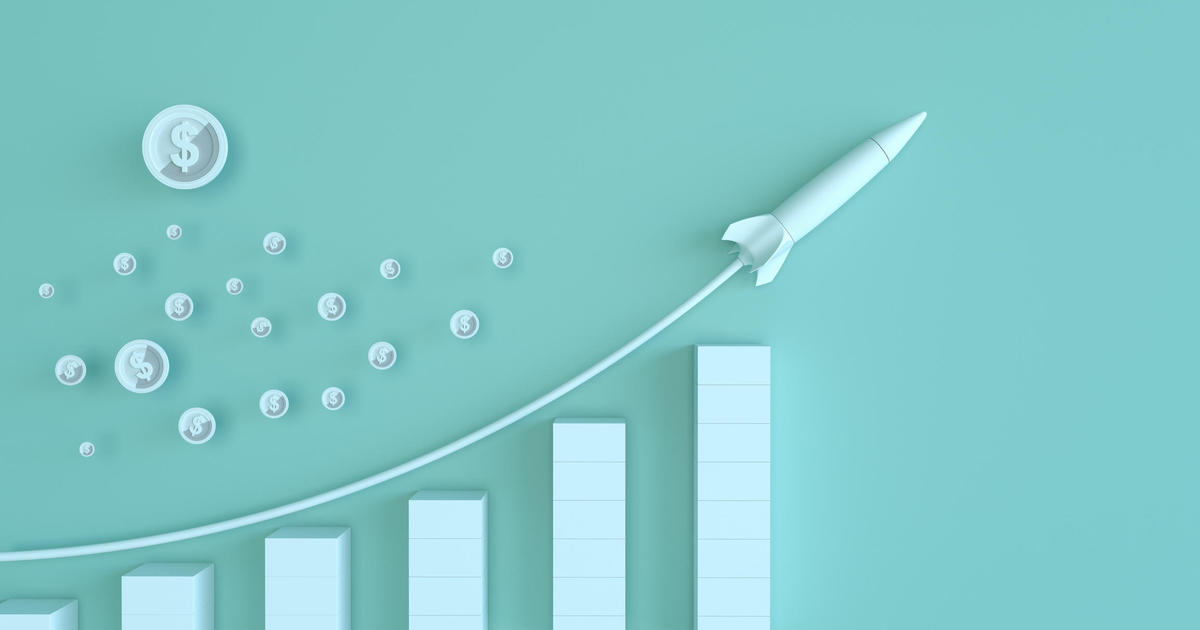Stock analysts who got it wrong last year predict a soft landing in 2024
What a difference a year makes. Heading into 2023, stock forecasters were predicting an imminent recession triggered by high interests would torpedo financial markets. As we head into 2024, by contrast, Wall Street expects a soft landing for the U.S. economy to power the market to record highs.
Most strategists also expect the Federal Reserve to turn the page on its rate-hiking offensive and for the S&P 500 to grind higher in the new year.
Like most New Year's resolutions, however, stock forecasts often end up bowing to reality.
That imminent recession analysts predicted last year? It never materialized. Instead, the economy continues to grow; inflation is easing and equities are cruising toward year-end having booked double-digit gains.
"Eighty percent of people were wrong this year — it's pretty easy to paint yourself into a narrative corner and really get yourself convinced we were going to have a recession," Art Hogan, chief market strategist at B. Riley Wealth Management, told CBS MoneyWatch.
Economic growth is averaging at about 3% this year, compared to 1.8% annualized growth over the last 10 years. "That's a pretty healthy recession we had in 2023," quipped Hogan.
Investors in the year ahead will have to contend with a presidential election as well as military conflicts in Israel and Ukraine, all or none of which could impact how U.S. equities fare.
Magnificent 7
Currently up 19% year-to-date, the S&P's advance this year was largely fueled by the so-called Magnificent Seven, a group of large-cap technology stocks. Those companies — Alphabet, Amazon, Apple, Microsoft, Meta Platforms, Nvidia and Tesla — accounted for more than 70% of the S&P's advance in 2023. "The other 493 stocks haven't gotten much love," said Hogan, who expects industrials, health care and energy companies — the worst-performing sectors — to catch up in the new year.
JPMorgan analysts offer a bleaker take. "One should note that virtually all of the stock market's gains this year came from a small number of tech stocks," JPMorgan's Marko Kolanovic and Bram Kaplan wrote Thursday in a client's note. "The rest of the market was largely in a 'holding pattern,' unsure of prospects for the economy. This led to a high concentration of index weight in a handful of the largest stocks, something not seen in 50 years."
Still, Hogan optimistically projects the S&P 500 will end 2024 somewhere between 4,800 and 5,000, giving a 9.5% return or 10.5% if dividends are included. And the veteran market strategist is not alone in his rosy outlook.
Bank of America's Savita Subramanian and Deutsche Bank's Binky Chadha forecast the S&P 500 will increase to 5,000 or higher. David Kostin at Goldman Sachs Group believes the stock benchmark will end at or near its prior record, and Morgan Stanley's Mike Wilson, typically known for holding a bearish view on stocks, is forecasting the index will close 2024 at 4,500.
Record high for S&P 500?
BMO Capital Market also expects the S&P to climb to a record in 2024, while Societe Generale is looking for equities to edge higher, even if they don't topple the prior closing peak of 4,796.56 hit in January 2022.
Amid these bullish calls, JPMorgan Chase is the biggest outlier: The S&P 500 will decline to 4,200 by the end of next year as household savings contract and geopolitical risks stay elevated, Dubravko Lakos-Bujas, JPMorgan's chief global equity strategist said in his bleaker-than-the-rest forecast.
"Inflation has played a significant role in propping up corporate earnings, which in many cases delivered by selling fewer units at higher prices or by cost-cutting," wrote Lakos-Bjas' colleagues, Kolanovic and Kaplan.
To be sure, where the S&P 500 lands in 2024 will ultimately come down to the performance of the individual companies it tracks.
"Fortunately, corporate profits are set to gain traction as we expect market growth to reflect earnings gains. Our base case scenario has the S&P Index fairly valued in the 4,750 range by year-end 2024," writes Comerica's Chief Investment Officer John Lynch.
In any given year, the S&P 500 ends higher than it started 68% of the time, a percentage that climbs to 83% in the fourth year of a presidential cycle, "so that math works for you next year as well," offered Hogan.
"The labor market hasn't broken yet, that's the biggest piece holding things together. If the Fed remains stubborn on inflation and never cuts rates next year, that could slow economic activity," Hogan said. Another scenario that could derail the stock market's grind higher would be an expansion of the Hamas-Israeli conflict to include Iran, potentially disrupting the global supply of petroleum products, he noted.



